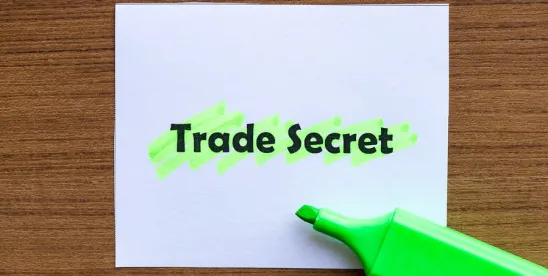The Court of Appeals of Virginia vacated a $2 billion award in a trade secret misappropriation case based on a series of evidential errors and improper jury instructions. PegaSystems Inc. v. Appian Corporation, Case No. 1399-22-4 (Va. Ct. App. 2024) (Beales, Friedman, Callins, JJ.)
PegaSystems and Appian are both companies in the business process management (BMP) industry and offer platforms that allow third parties to build software applications. Appian accused Pega of trade secret misappropriation, presenting evidence that Pega hired a “spy” to license Appian’s technology and use the licensed access to pass trade secrets to Pega, thereby enabling Pega to better market its own technology and exploit Appian’s weaknesses. Pega’s “spy,” Youyong Zou, recorded almost 100 videos of Appian’s platform and used them to demonstrate the strengths and weaknesses of Appian’s system in tutorials sent to Pega. Appian brough an action against Pega and Zou under the Virginia Uniform Trade Secrets Act (VUTSA) and the Virginia Computer Crimes Act. At trial, the jury returned a verdict in favor of Appian, finding that Pega and Zou misappropriated Appian’s trade secrets in violation of VUTSA. The jury awarded Appian damages in excess of $2 billion, which was the largest damages verdict in Virginia’s history. Pega appealed.
The Appellate Court found that although Appian did not fail as a matter of law to prove evidence of trade secret misappropriation, the trial court erred in instructing the jury by failing to place the burden of proximate causation on Appian, as required by both VUTSA and Virginia precedent. The Appellate Court found that this error resulted in a potentially excessive award that assumed all of Pega’s sales were tainted by the misappropriation. The Appellate Court instructed that on remand, Appian bears the burden of proving that the misappropriation caused the alleged damages and proving the amount of damages attributable to the trade secret with reasonable certainty. The Appellate Court also found that the trial court erroneously excluded key evidence that could have established that much of Pega’s revenue had nothing to do with the alleged misappropriation.
The Appellate Court further found that the trial court erred in excluding evidence that Pega argued would establish that many of the allegedly stolen features actually predated Pega’s contact with Zou. The trial court had excluded the evidence because the original laptop with this evidence had become inoperable. The trial court had refused to allow Pega the opportunity to authenticate the evidence and introduce the software on a new laptop. The Appellate Court found that this refusal was an abuse of discretion. The Appellate Court concluded that Pega was entitled to introduce a copy of this software under the rules of evidence, even if it was not on the original laptop.
Finally, the Appellate Court determined that the trial court erred in instructing the jury that the number of people with access to Appian’s trade secrets was “not relevant” to “any issue in this case.” The Appellate Court found that Pega’s evidence that “thousands” of people potentially had access to Appian’s trade secrets was relevant to (although not dispositive regarding) Appian’s reasonable efforts in protecting its secrets and whether such secrets were generally known or readily ascertainable.
The Appellate Court therefore reversed the judgment and remanded for a new trial.



 />i
/>i

